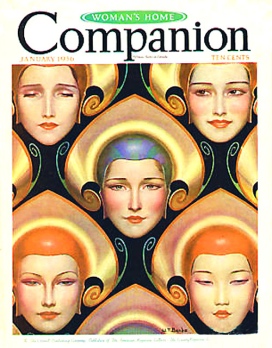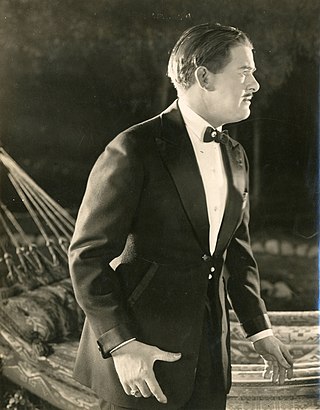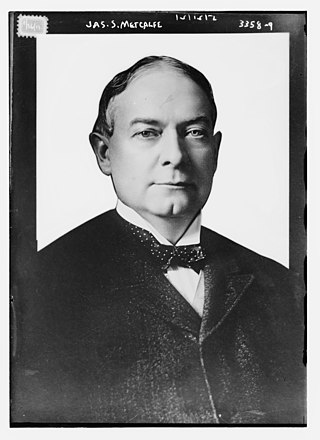Related Research Articles

Ladies' Home Journal was an American magazine last published by the Meredith Corporation. It was first published on February 16, 1883, and eventually became one of the leading women's magazines of the 20th century in the United States. In 1891, it was published in Philadelphia by the Curtis Publishing Company. In 1903, it was the first American magazine to reach one million subscribers.

The Saturday Evening Post is an American magazine, currently published six times a year. It was issued weekly under this title from 1897 until 1963, then every two weeks until 1969. From the 1920s to the 1960s, it was one of the most widely circulated and influential magazines within the American middle class, with fiction, non-fiction, cartoons and features that reached two million homes every week. The magazine declined in readership through the 1960s, and in 1969 The Saturday Evening Post folded for two years before being revived as a quarterly publication with an emphasis on medical articles in 1971. As of the late 2000s, The Saturday Evening Post is published six times a year by the Saturday Evening Post Society, which purchased the magazine in 1982. The magazine was redesigned in 2013.

Curtis Arnoux Peters, Jr., known professionally as Peter Arno, was an American cartoonist. He contributed cartoons and 101 covers to The New Yorker from 1925, the magazine's first year, until 1968, the year of his death. In 2015, New Yorker contributor Roger Angell described him as "the magazine's first genius".

Chatelaine is an English-language Canadian women's magazine which covers topics from food, style and home décor to politics, health and relationships. Chatelaine and its French-language version, Châtelaine, are published by St. Joseph Communications.
Frederick Orlin Tremaine was an American science fiction magazine editor, most notably of the influential Astounding Stories. He edited a number of other magazines, headed several publishing companies, and sporadically wrote fiction.

Carl William Demarest was an American character actor, known especially for his roles in screwball comedies by Preston Sturges and for playing Uncle Charley in the sitcom My Three Sons Demarest, who frequently played crusty but good-hearted roles, was a prolific film and television actor, appearing in over 140 films, beginning in 1926 and ending in the late 1970s. Before his career in motion pictures, he performed in vaudeville for two decades.

New Masses (1926–1948) was an American Marxist magazine closely associated with the Communist Party USA. It succeeded both The Masses (1912–1917) and The Liberator (1918-1924). New Masses was later merged into Masses & Mainstream (1948–1963). With the coming of the Great Depression in 1929 America became more receptive to ideas from the political Left and New Masses became highly influential in intellectual circles. The magazine has been called “the principal organ of the American cultural left from 1926 onwards."
Rexford G. Newcomb was an American architectural historian.

Elizabeth Wright Enright Gillham was an American writer of children's books, an illustrator, writer of short stories for adults, literary critic and teacher of creative writing. Perhaps best known as the Newbery Medal-winning author of Thimble Summer (1938) and the Newbery runner-up Gone-Away Lake (1957), she also wrote the popular Melendy quartet. A Newbery Medal laureate and a multiple winner of the O. Henry Award, her short stories and articles for adults appeared in many popular magazines and have been reprinted in anthologies and textbooks.
Silas Bent IV, son of Silas Bent III and Ann Elizabeth (Tyler) Bent was an American journalist, author, and lecturer.

Woman's Home Companion was an American monthly magazine, published from 1873 to 1957. It was highly successful, climbing to a circulation peak of more than four million during the 1930s and 1940s. The magazine, headquartered in Springfield, Ohio, was discontinued in 1957.

The American Home was a monthly magazine published in the United States from 1928 to 1977. Its subjects included domestic architecture, interior design, landscape design and gardening.

Joseph Cookman was an American journalist, critic and a founder of The Newspaper Guild.
Mary Cookman Bass was an American journalist, writer, and executive editor of the Ladies' Home Journal from 1936 to 1963.

Raymond Cannon was an American actor, film director, screenwriter, journalist, and author known for his work with D. W. Griffith and Buster Keaton.

Henry Adams Bellows was a newspaper editor and radio executive who was an early member of the U.S. Federal Communications Commission. He is also known for his translation of the Poetic Edda for The American-Scandinavian Foundation.
Dorothy Walworth Merle was an American novelist, writer, and lecturer. She published her work under her married name, Dorothy Walworth Carman, and later under her maiden name, Dorothy Walworth. She wrote novels and short stories, and much of her early work focused on community life in the suburbs. In the last years of her life, she wrote non-fiction articles for various publications, and was a staff writer at the Reader's Digest.
Bruce Gould and Beatrice Blackmar Gould were co-editors of the Ladies' Home Journal for almost 27 years, from 1935 through 1962, including the golden years of the magazine.

James Stetson Metcalfe was an American drama critic who wrote for Life Magazine and The Wall Street Journal.
References
- ↑ (February 1928) Masthead, Ladies' Home Journal (the first issue masthead which lists Schuler instead of prior editor Barton Currie is the February 1928 issue; Schuler's New York Times obituary states he was editor from 1927 to 1935; unless another source is found to pinpoint the exact date, it may well be he took over in late 1927)
- 1 2 (6 June 1968). Loring Schuler, 81, Ex-Magazine Editor, The New York Times , p. 47 (paywall)
- ↑ Endres, Kathleen L. and Therese Lueck. Women's Periodicals in the United States: Consumer Magazines, p. 175 (1995) ("The magazine offered a wide range of editorials and features designed to help female readers through the hard times. Loring Schuler crafted most of the early depression comment.")
- ↑ (18 July 1935). Answers to Questions, The Washington Star , p. 8, col. 7